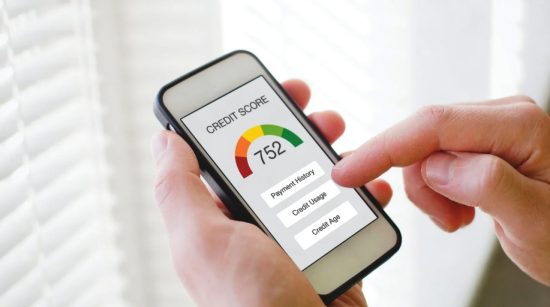
Have you ever wondered why your credit card application gets delayed or your loan is rejected despite having a stable income? In the UAE, your AECB credit score could be the deciding factor.
This three-digit number, generated by the Al Etihad Credit Bureau, plays a critical role in your financial life, from loan approvals to even job applications. If you’re living in the UAE and haven’t checked your AECB score yet, you’re probably missing out on key financial opportunities.
In this guide, you’ll discover how your AECB credit score works, how to check it, what makes it go up or down, and what you can do to improve it.
Whether you’re applying for a personal loan or renting a flat in Dubai, knowing your score can be the difference between approval and rejection. Let’s help you understand how to manage your score like a pro in 2025.
What Is the AECB Credit Score in UAE?

The AECB credit score is a three-digit number ranging between 300 and 900, issued by the Al Etihad Credit Bureau (AECB). This number reflects your creditworthiness, meaning how likely you are to repay your debts on time.
A higher score suggests that you are financially responsible, while a lower score indicates a higher risk for lenders. The Al Etihad Credit Bureau, established by the UAE government, collects credit data from banks, telecom companies, and financial institutions across the country. This data includes your credit card usage, loan payments, utility bill payments, and more.
Once this information is compiled, an algorithm calculates your score. This score is used by banks and financial institutions to decide whether they should lend you money or extend credit. So, if you’re planning to apply for a mortgage, car loan, or even a mobile phone contract, your AECB score can be a dealmaker or a dealbreaker.
Why Is Your AECB Credit Score Important?
Your AECB credit score is more than just a number, it’s your financial reputation in the UAE. Here’s why it matters so much:
When you apply for a loan or credit card, banks check your AECB score to assess your reliability. A high score increases your chances of approval, while a low score could lead to rejection or smaller credit limits.
Even if you do get approved with a lower score, the interest rates are often higher, which means more expensive borrowing over time.
Your score can also influence rental agreements. Real estate agencies and landlords often request a credit report to understand your payment behaviour. If your score shows missed bills or overdue payments, you may find it harder to rent your preferred property.
Likewise, employers, especially in the finance or government sector, may request your credit report to evaluate your financial discipline. A strong credit score can demonstrate that you’re responsible and trustworthy.
- A higher score means better interest rates and higher loan limits
- More rental and housing opportunities with trusted agencies
- Better job prospects, especially in finance and government roles
- Easier approval for car loans, credit cards, and mobile contracts
By maintaining a healthy credit score, you position yourself for greater financial flexibility and trust across various sectors.
How to Calculate AECB Credit Score in UAE?

Your AECB credit score is calculated using a specific algorithm that takes into account various aspects of your financial activity. Each factor is weighted differently to build a complete financial picture of your behaviour.
Key factors that influence the calculation:
- Payment History: The most important component, it shows whether you pay your bills and loan EMIs on time.
- Credit Utilisation Ratio: This refers to how much of your available credit you’re using. Ideally, it should be below 30%.
- Length of Credit History: The longer you’ve had active credit lines, the better for your score.
- Types of Credit: A mix of credit cards, personal loans, and auto loans shows you can handle various types of credit responsibly.
- Recent Credit Activity: If you’ve applied for multiple new credit lines recently, it may reduce your score.
Each of these categories contributes to your final score, which is recalculated regularly as your financial behaviour evolves.
How Can You Check Your AECB Credit Score for Free?
You can check your AECB credit score for free using authorised platforms that provide access through verified procedures. These platforms typically ask for a few essential details such as your name, Emirates ID number, and registered mobile number. Once submitted, your score is generated and displayed instantly. It’s a simple and secure process designed to help you monitor your financial health regularly without extra costs.
What Platforms Offer a Free Credit Score Check in the UAE?
Getting your AECB credit score doesn’t always require payment. You can access your score through a variety of digital platforms, including:
- Mobile banking apps that are integrated with credit score features
- Online financial services that provide limited access to credit score checks
- Licensed third-party portals offering registered users access to basic credit details
Key benefits of using these platforms:
- Fast and secure access to your score
- No fees or subscriptions for basic score viewing
- Convenient monitoring via mobile or desktop
These tools allow you to stay on top of your financial profile with minimal effort and zero cost.
Is There a Difference Between a Credit Score and a Credit Report?
Yes, while they’re related, they serve different purposes.
A credit score is a numerical value ranging from 300 to 900 that summarises your creditworthiness. On the other hand, a credit report is a detailed document outlining your entire credit history.
| Parameter | Credit Score | Credit Report |
| Definition | A 3-digit number showing credit risk | Comprehensive record of financial history |
| Purpose | Used to quickly assess risk | Deep dive into past financial behavior |
| Access | Instant numerical value | Full document with breakdowns |
| Includes | Credit score only | Loan history, credit cards, inquiries, payment patterns |
Both are useful, but the report offers more insight if you’re seeking detailed improvements.
What Is a Good AECB Credit Score Range in the UAE?

Understanding what constitutes a good or bad AECB credit score is key for planning your financial decisions. The AECB categorizes scores into five ranges:
| Credit Score Range | Rating | Category |
| 746 – 900 | 5 Stars | Very High |
| 711 – 745 | 4 Stars | High |
| 651 – 710 | 3 Stars | Medium |
| 541 – 650 | 2 Stars | Low |
| 300 – 540 | 1 Star | Very Low |
A score above 750 is considered excellent and opens doors to premium credit cards and low-interest loans. The minimum credit score for a personal loan in the UAE is usually around 580 to 620, depending on the lender.
To increase your chances of approval:
- Maintain low credit utilisation
- Pay your bills on time
- Avoid applying for multiple loans simultaneously
These strategies can help elevate your score into a more favourable range.
What Factors Affect Your AECB Credit Score the Most?
Your AECB credit score is affected by several financial behaviours. The most influential is your payment history. Even one missed payment can drop your score significantly and remain on your record for years.
Other important factors include:
- Applying for too many loans in a short time, which triggers multiple hard inquiries
- Closing credit cards, especially older ones, which shortens your credit history and raises utilisation
- High balances on one card, which increase your credit usage
- Salary and residency status may not directly affect your score, but can influence lending decisions
Maintaining stable credit behaviour and monitoring your activity will keep your score in good standing.
How Can You Improve Your AECB Credit Score Quickly?

If you’re working to improve your credit score, the following actions can make a quick difference:
- Always pay your bills on time, including credit cards, loans, and utilities
- Keep your credit utilisation below 30%
- Request a higher credit limit to improve the ratio if your spending remains the same
- Maintain a long credit history by keeping older cards active
- Diversify your credit mix with different types of loans and credit
- Avoid applying for new credit unless necessary
- Dispute any inaccuracies in your credit report immediately
Improvement timelines vary, but consistent effort over 3 to 6 months can lead to noticeable score changes.
What Happens If You Have a Low AECB Credit Score?
A low score doesn’t mean the end of the road, but it does make financial access more difficult. You may still be eligible for loans or credit cards, but expect:
- Higher interest rates
- Lower credit limits
- Longer approval processes
- Additional documentation requirements
Some lenders may even reject your application outright. Additionally, landlords or employers may hesitate to proceed based on your financial reliability. However, improving your score is very possible with discipline and patience.
What’s Inside Your AECB Credit Report?
Your AECB credit report includes detailed insights into your financial behaviour. It highlights both positive and negative patterns to give lenders a full view.
Important sections include:
- Credit summary: Total number of active and closed accounts
- Payment history: On-time and missed payments
- Credit utilisation ratio
- Personal information: Name, address, Emirates ID, employer
- Loan and card details: Credit limits, remaining balances, and defaults
You should check your report at least twice a year to monitor for errors, fraud, or overdue payments. Regular checks help you maintain financial control.
How Does the AECB Credit Score Compare Globally?

While credit scoring systems exist in many countries, the UAE’s AECB model has some distinct features.
In the US, scores range from 300 to 850, using models like FICO. The UK uses multiple scoring models through agencies like Experian and Equifax. What sets the UAE apart is that the AECB centralises all financial activity into a government-backed platform.
Unlike in other countries, your UAE score also factors in utility bills and telecom payments, offering a broader snapshot. This makes AECB scores a more comprehensive measure of financial reliability within the country.
Can You Dispute or Fix Errors in Your AECB Credit Report?
Yes, if you find inaccuracies, you can raise a data correction request through the AECB’s official website. This process is simple but must be supported by valid documents.
Steps to dispute errors:
- Visit etihadbureau.ae/correction
- Fill out the Data Correction Request form
- Provide your Emirates ID, mobile number, and details of the correction
- Attach supporting documents such as utility bills or bank statements
Most disputes are resolved within 10–20 working days, depending on the case. This process ensures your credit history remains accurate and fair.
Conclusion
Your AECB credit score is one of the most powerful tools in your financial journey in the UAE. Whether you’re buying a home, leasing a car, applying for a job, or renting a flat, this three-digit score can unlock or block opportunities.
Understanding how it works, how to monitor it, and how to improve it gives you a clear advantage. You now have the knowledge to take proactive steps in managing your financial life.
The earlier you start tracking and improving your score, the better your chances of securing a strong financial future in the UAE.
FAQs
How often should I check my AECB credit score?
You should check your AECB credit score every 3 to 6 months to stay updated. Frequent checks help detect any errors or fraudulent activities early.
Does checking my credit score affect it negatively?
No, checking your credit score is considered a soft inquiry and does not reduce your score.
What is the minimum credit score needed for a home loan in the UAE?
While it varies by bank, most require a score of at least 650 for home loan approval.
Can I build a credit score without a credit card?
Yes, paying utility bills, taking small personal loans, or becoming an authorised user can build your score.
How long does negative information stay on my credit report?
Most negative records like missed payments stay on your report for up to five years.
Can expats in the UAE get their AECB credit report?
Yes, all residents with Emirates ID can access their AECB credit report.
Is there a mobile app for checking AECB credit score?
Yes, the AECB mobile app is available on both iOS and Android for easy access to your score and report.



